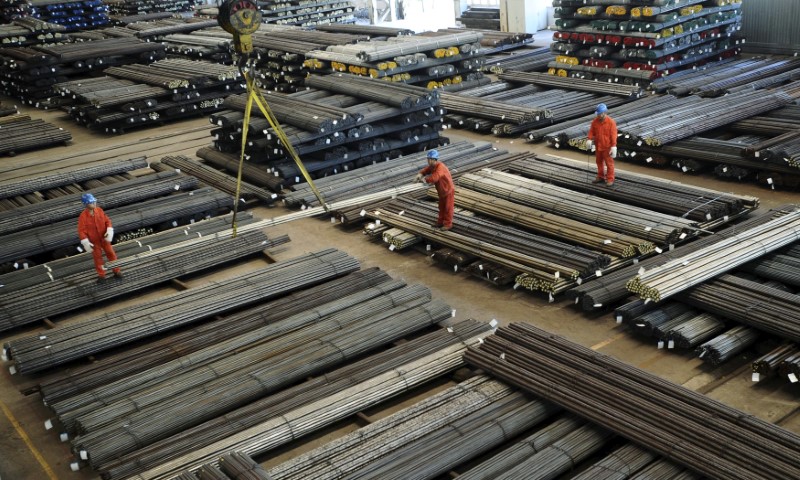BEIJING (Reuters) – China needs to reallocate half a million steel and coal workers in 2017 due to capacity cuts in these industries, China’s labor minister said on Wednesday, as the world’s second-largest economy tries to combat excess in the bloated industries. “This year we will continue to cut capacity in coal and steel,” Yin Weimin, the head of China’s Ministry of Human Resources and Social Security, told reporters.
“We will need to reallocate jobs to 500,000 workers,” he said, including assigning workers different jobs within the same or a different company, early retirement or encouraging them to become entrepreneurs. China will introduce a policy this year to encourage the development of new industries, for example internet-related industries, that will create new jobs, he said.
China reallocated jobs to 726,000 coal and steel workers in 2016 “without any major problems”, he said, adding that China’s overall employment outlook in 2017 is expected to remain relatively stable, despite the government facing immense pressure to create jobs. China’s central government allocated more than 100 billion yuan ($14.54 billion) last year to help laid-off coal and steel workers and spent more than 30 billion yuan from the fund last year, Yin said. China created 13.14 million urban jobs in 2016, Yin said, but did not specify whether this was a gross or net figure of the number of people at work.
China’s urban registered unemployment rate will remain at around 4.5 percent in 2017, Yin told reporters, but many analysts believe this figure is an unreliable indicator of nationwide employment conditions. China’s official unemployment rate has been around 4 percent for years, despite the rapid slowdown in the economy from double-digit growth to 6.7 percent in 2016, its slowest pace in 26 years. (Reporting by Sue-Lin Wong; Editing by Richard Pullin and Christian Schmollinger)
China to reallocate 500,000 coal and steel workers in 2017: labor minister

Reuters
















